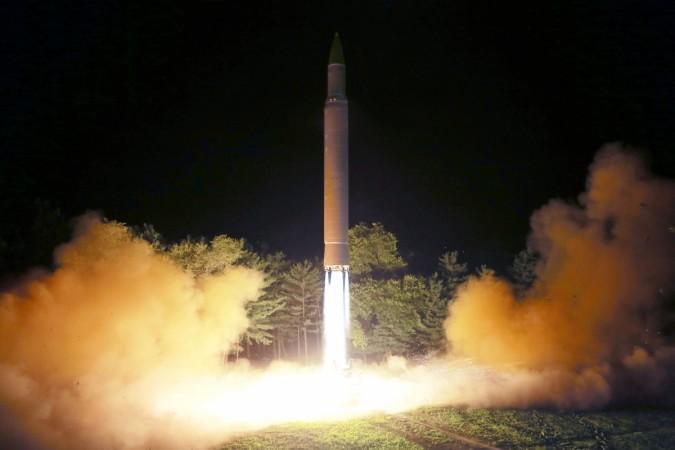
It looks like North Korea, with its constant nuclear tests, is not only rubbing other countries the wrong way but is also causing quite some damage to itself. The country has been making headlines since it tested a hydrogen bomb on September 3 and then its leader indulged in a war of words with US President Donald Trump.
Pyongyang is also bearing the brunt of its nuclear programme that its leader Kim Jong un refuses to shut down. According to defectors, the reclusive nation's nuclear test site, which was once lush and rich, has now turned into a wasteland. Not just that, the constant tests have also resulted in babies being born with several kinds of deformities.
"I heard from a relative in Kilju that deformed babies were born in hospitals there," a defector told South Korea newspaper Chosun Ilbo, according to Daily Mail. The mountainous region around the test side is also said to have witnessed "multiple landslides" since.
Residents living in the area have also said that they were concerned about the radioactive contamination in the region and Pyongyang had not informed them of the tests beforehand. "I spoke on the phone with family members I left behind there and they told me that all of the underground wells dried up after the sixth nuclear test," another defector added.
Defectors have also said that trees are not able to sustain in the area and most of them die due to contamination.
Not just vegetation and land, the infrastructure in the region is also taking a hit and a tunnel is known to have collapsed killing 200, days after the hydrogen bomb test.
![North Korean leader Kim Jong Un provides guidance on a nuclear weapons program in this undated photo released by North Korea's Korean Central News Agency (KCNA) in Pyongyang September 3, 2017. [Representational Image] North Korea says it has developed 'advanced hydrogen bomb'](https://data1.ibtimes.co.in/en/full/660677/north-korea-says-it-has-developed-advanced-hydrogen-bomb.jpg?h=450&l=50&t=40)
Meanwhile, it has earlier been reported that the mountain under which the reclusive nation carries out these tests may be at the risk of collapsing. Even though the country has not really specified which mountain it has been carrying these tests under, researchers at the University of Science and Technology of China in Hefei, Anhui province, have reportedly measured and studied the earthquakes that are a result of these nuclear tests and believe that these are all being carried out under the same mountain.
And if the mountain does collapse, as believed by these experts, it could result in some major distress to the environment. One more test and a part of the mountain could cave in resulting in a hole, through which harmful nuclear radiations could spread to the entire region.
"We call it 'taking the roof off'. If the mountain collapses and the hole is exposed, it will let out many bad things," Wang Naiyan, the former chairman of the China Nuclear Society and senior researcher on China's nuclear weapons programme, told the South China Morning Post.

















